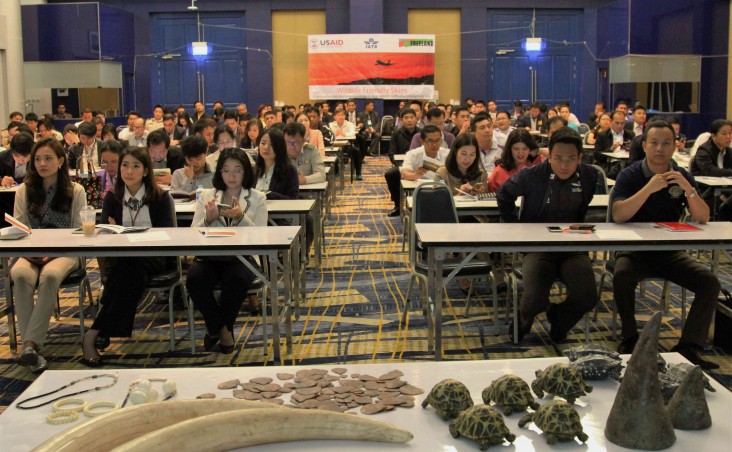
For Immediate Release
BANGKOK: Airline and airport staff in one of the world’s most active wildlife trafficking hotspots are now better equipped to detect, report and combat wildlife crime. At last week’s Wildlife Friendly Skies workshop at Bangkok’s Suvarnabhumi Airport, more than 240 participants received training in identifying common smuggling methods and routes, signs of trafficking, effective first-response actions and examined real-life case studies.
Extensive criminal networks regularly move large volumes of illegal wildlife and wildlife products through global commercial transport systems – including flights and airports. Everything from individual tiger cubs stuffed in suitcases ivory tusks and rhino horns concealed in cargo containers pass through international boundaries routinely. Live reptiles, birds and small primates are often intercepted while being smuggled, invariably in cruel, inhumane conditions.
Participants at the Wildlife Friendly Skies workshop, including flight attendants, cargo handlers and customs officers, learned more about what they can do to combat this crime. Experienced instructors presented an in-depth, country-specific analysis of the trade, as well as tips on how to identify wildlife crime and criminals, and reporting tools. The International Air Transport Association (IATA) is a supporting partner of Wildlife Friendly Skies, and has facilitated the training of transport staff from Africa to Asia.
Wildlife Friendly Skies is part of the Asia’s Regional Response to Endangered Species Trafficking program, which is funded by the U.S. Agency for International Development (USAID) and implemented by Freeland.







Comment
Make a general inquiry or suggest an improvement.